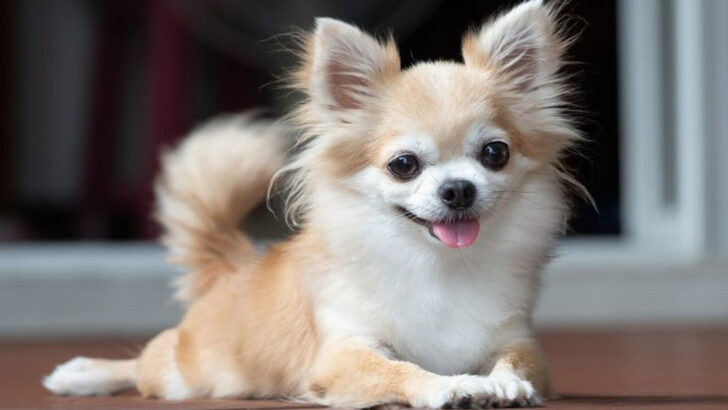Some dogs just aren’t built for chilly weather. Thin coats, small frames, or even a laid-back attitude toward activity can leave certain breeds shivering the moment temperatures drop. If your pup starts burrowing under blankets or refusing to go outside when it’s cold, it might not be stubbornness—it could just be biology.
Knowing which breeds are more sensitive to the cold can help you make better choices for their comfort and health. From short-haired companions to toy-sized snugglers, some dogs need a bit of extra help staying warm when the air turns crisp. If you live in a cooler climate or face harsh winters, it’s worth checking if your dog might need more than just a cozy bed.
Chihuahua
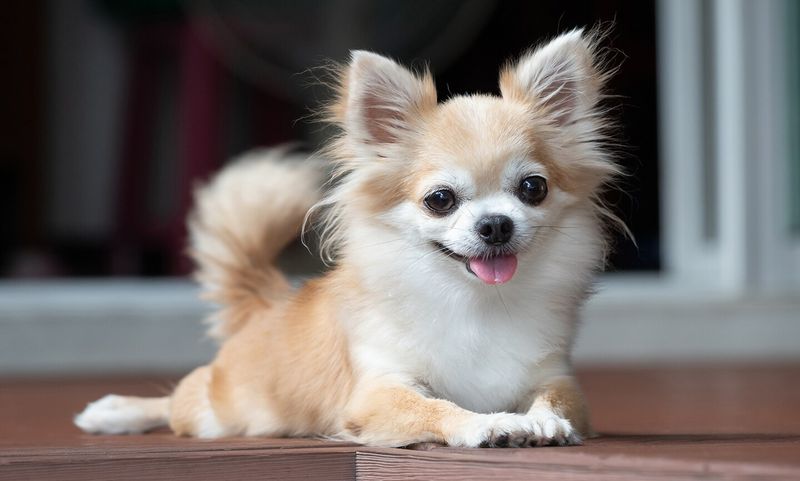
Chihuahuas are tiny dogs with big hearts, but their small size and thin coats make them vulnerable to cold temperatures. They lack the body fat and fur needed to keep them warm. To ensure their comfort during winter, consider purchasing a selection of stylish sweaters or coats.
On colder days, limit their outdoor playtime and provide plenty of indoor activities to keep them entertained. It’s essential to pay attention to signs of discomfort, such as shivering or reluctance to go outside, and act accordingly to keep your Chihuahua toasty and happy.
Pharaoh Hound
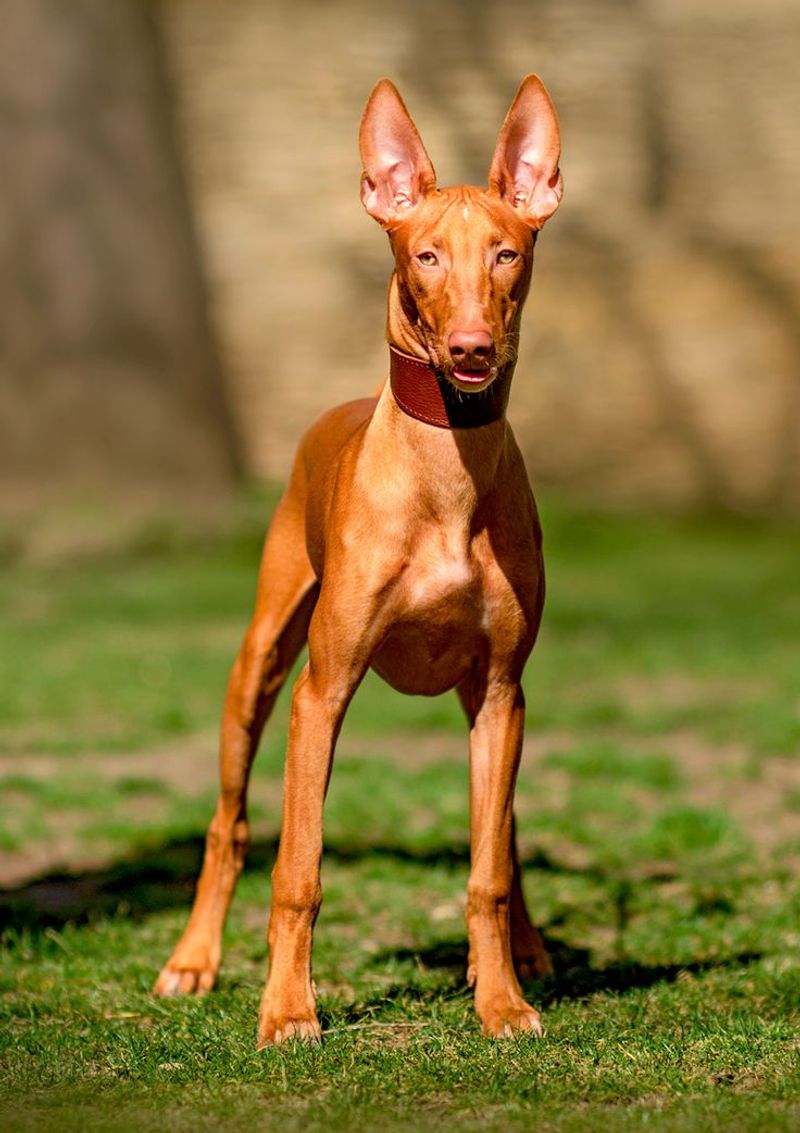
With its regal appearance, the Pharaoh Hound is a dog of ancient lineage, known for its elegance and grace. Despite its tough exterior, this breed has a surprisingly thin coat, making it ill-suited for cold weather.
Originally from the warm Mediterranean, these dogs are happiest when basking in the sun or lounging indoors in comfort. They thrive in temperate climates and need warmth during colder months.
Owners should provide adequate clothing and cozy bedding to keep them comfortable. Fun fact: The Pharaoh Hound is known for “blushing”—their noses and ears can turn pink when excited!
Greyhound
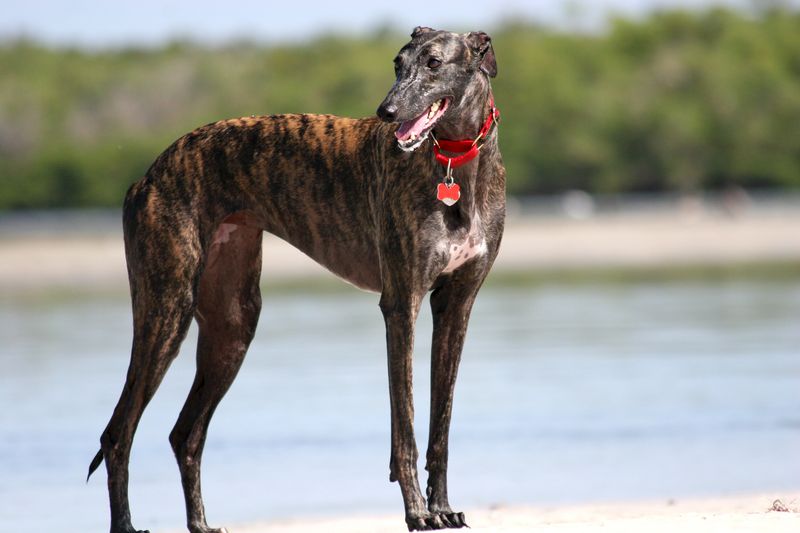
Greyhounds are known for their sleek, athletic build and thin skin, which unfortunately doesn’t provide much insulation from the cold. Despite their racing prowess, they often need help staying warm.
Investing in a good-quality coat can make a significant difference for your Greyhound during winter walks. Additionally, keeping their bedding warm and placing it away from drafts will ensure their comfort indoors. Monitoring their activity levels and ensuring they don’t get too cold during outdoor excursions is crucial to their well-being.
Saluki
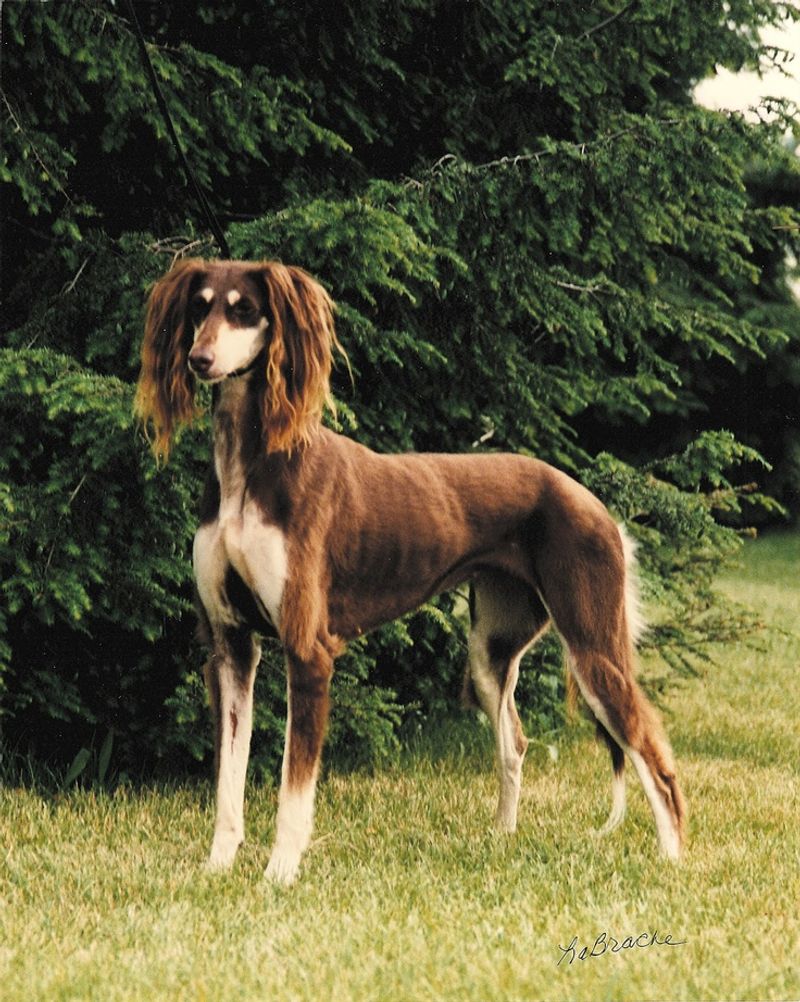
The Saluki, a breed revered for its grace and speed, is less equipped for cold weather due to its lean build and short coat.
While they are desert hunters by origin, Salukis enjoy lounging in warmth, preferring soft blankets and sunny spots to counteract the cold. Their slender physique leaves them less protected against harsh elements.
Owners often indulge their Salukis with extra layers and indoor comforts during winter months to ensure their well-being.
Italian Greyhound
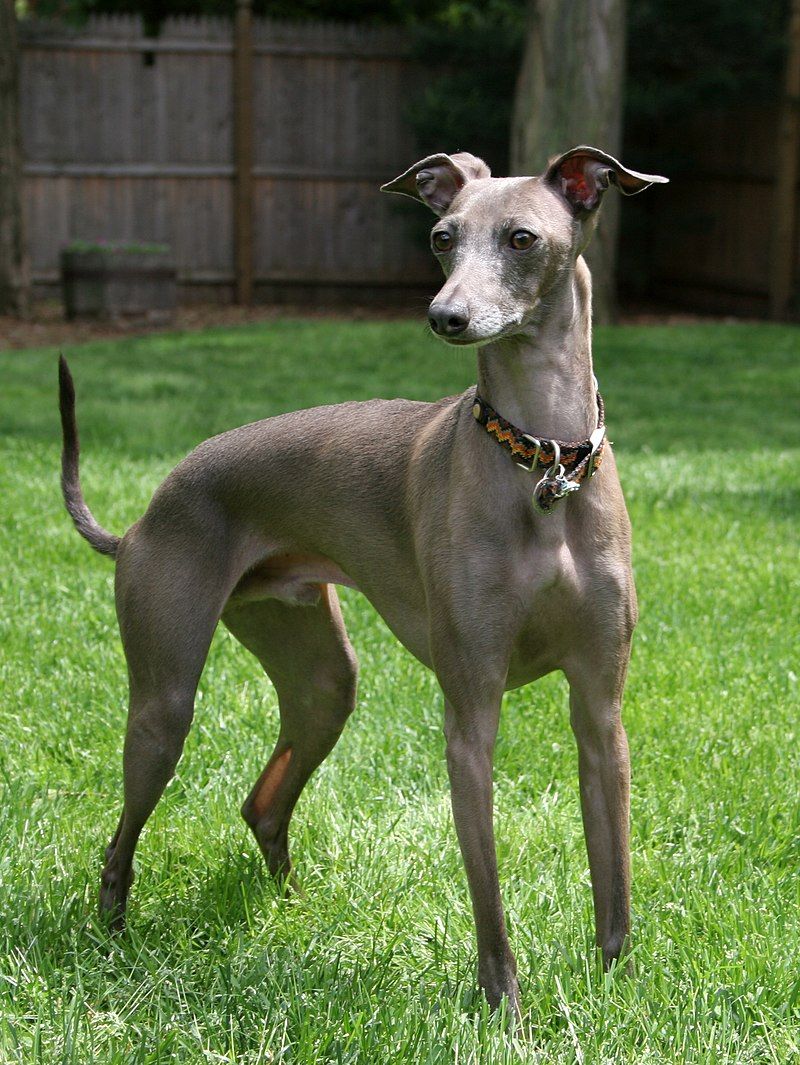
The Italian Greyhound shares similarities with its larger cousin but is even more sensitive to chilly weather. Their thin coat and small frame offer little protection against the elements.
To keep this elegant breed warm, consider a wardrobe of warm, stylish coats for outdoor walks. Indoors, provide cozy blankets and heated beds to make them feel secure and snug. It’s also beneficial to keep them engaged with playing games and mental exercises inside, avoiding unnecessary exposure to cold temperatures.
American Hairless Terrier
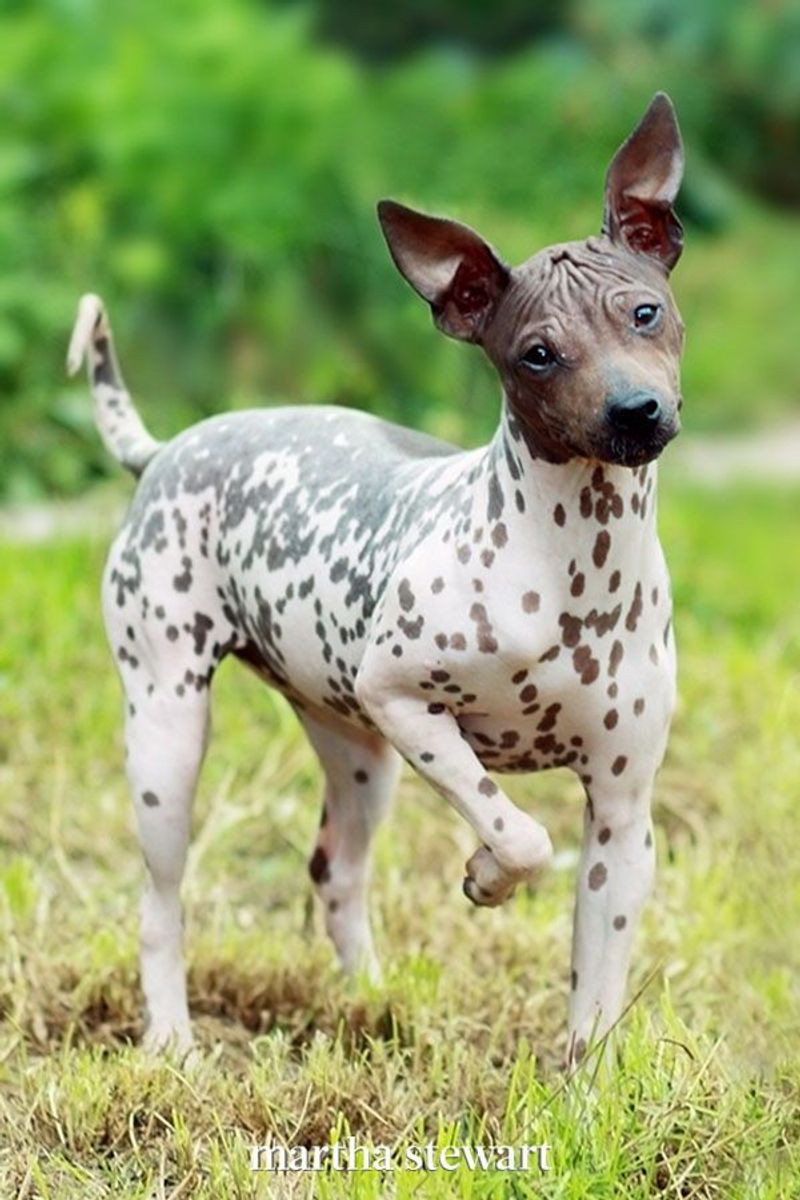
A spirited and energetic breed, the American Hairless Terrier is as unique as it sounds—completely devoid of a fur coat. This makes them particularly vulnerable to cold climates.
Despite their lively nature, they need to be clothed warmly when temperatures drop. Active and playful, they enjoy indoor games that keep them moving and warm.
Due to their lack of fur, skin care is essential to protect them from the elements. Did you know? This breed was recognized by the American Kennel Club only recently, in 2016.
Chinese Crested
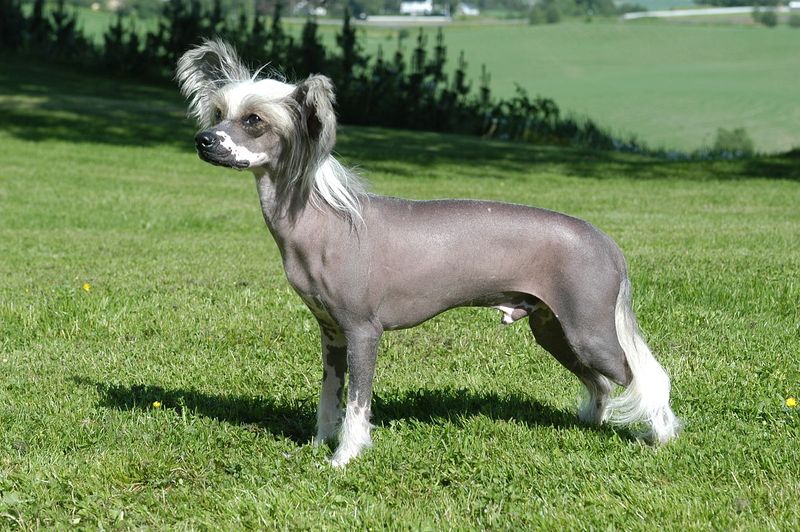
The unique appearance of the Chinese Crested, with its hairless body, makes it exceptionally vulnerable to the cold. Without a thick coat to rely on, extra precautions are necessary to keep it comfortable.
Investing in high-quality clothing and limiting outdoor time during harsh weather is advisable. Inside, provide a warm, draft-free environment with plenty of blankets. Special skin care products may also be needed to protect against dry, cold air, ensuring your Chinese Crested remains healthy and happy throughout winter.
Peruvian Inca Orchid
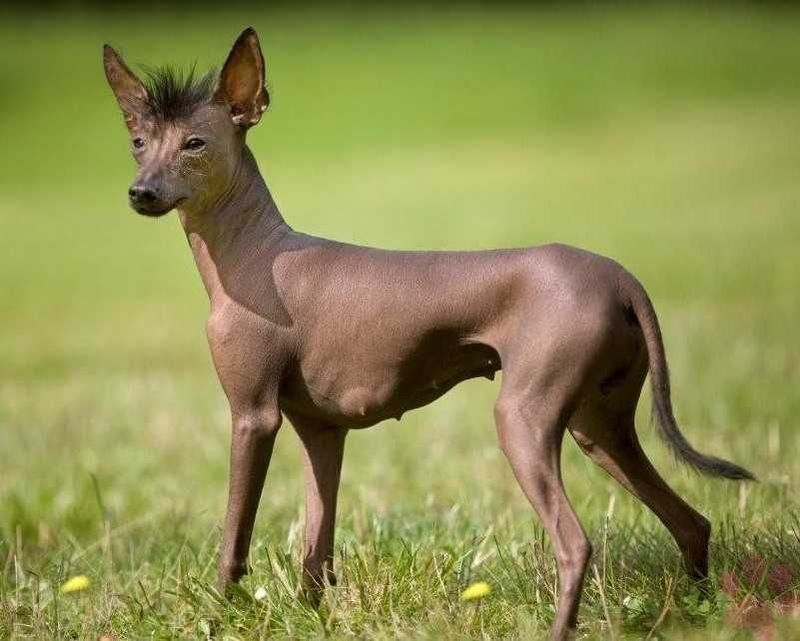
Known for its exotic name and appearance, the Peruvian Inca Orchid boasts an ancient heritage and a strikingly hairless look. Their lack of fur makes them susceptible to cold.
These dogs were once companions to the Inca nobility, enjoying the warmth of the sun in their native Peru. In colder environments, they require soft blankets and warm garments.
Their skin needs regular care to stay healthy. Owners should remember to moisturize their skin and provide sun protection. Fun fact: Despite their appearance, they are affectionate and warm-hearted companions.
Dachshund
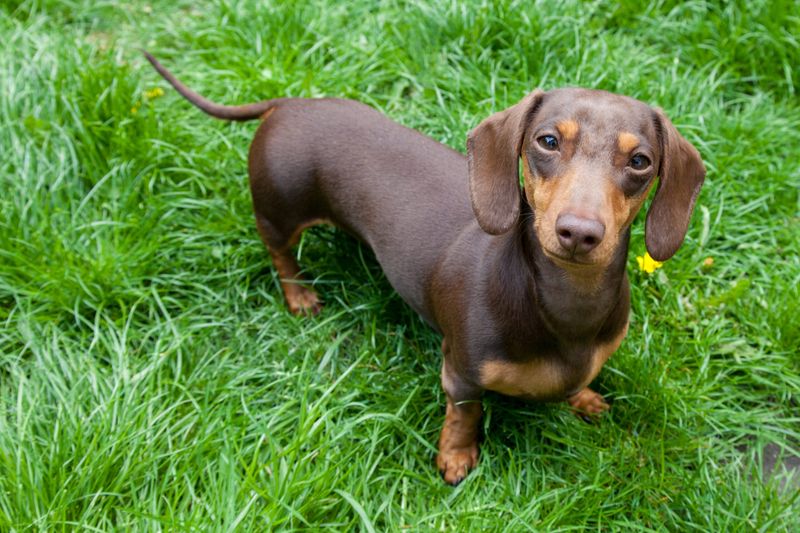
Dachshunds, with their long bodies and short legs, often struggle with cold weather. Their underbelly being close to the ground can make them particularly susceptible to cold drafts.
Providing warm, waterproof clothing when they venture outside is essential. Indoors, ensure they have a cozy sleeping area away from cold floors and drafts. Engage them in fun indoor activities to keep their spirits high. A watchful eye on their reactions to the cold will help maintain their comfort and health during chilly months.
Basenji
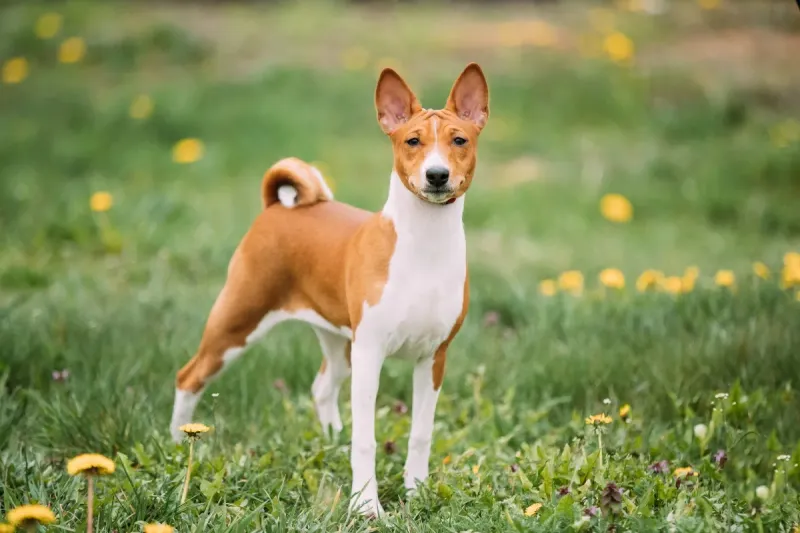
Basenjis are known for their sleek build and short coat, which provide minimal protection against the cold. Originally from Africa, they are not naturally equipped for chilly climates.
A warm coat for outdoor activities is a must, along with monitoring their outdoor time to prevent discomfort. Indoors, keeping them active with toys and puzzles will help them burn energy without braving the cold. Ensuring their living space is warm and free from drafts will help your Basenji stay cozy all winter.
Yorkshire Terrier
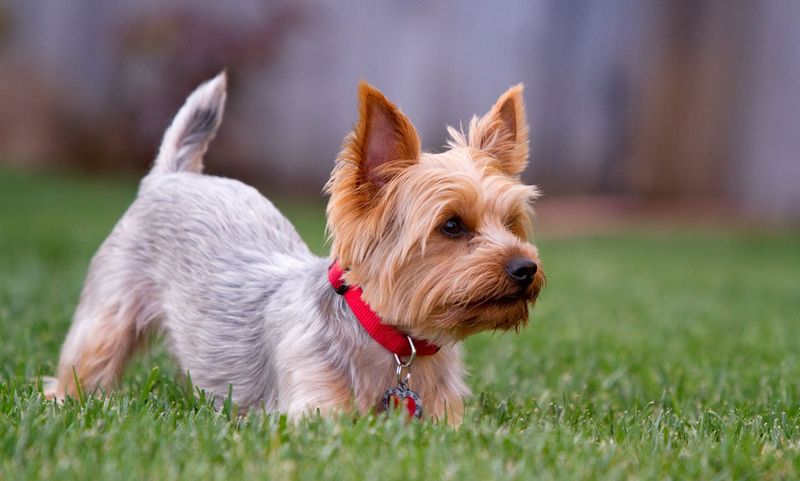
The Yorkshire Terrier’s long, silky hair offers little protection against cold temperatures. Despite their feisty demeanor, they are quite sensitive to the cold.
It’s important to dress them in warm, comfortable clothing for outdoor walks and ensure their indoor environment is cozy. Regular grooming can help maintain their coat’s health, but avoid cutting it too short during winter. Encouraging them to snuggle with blankets or in a warm dog bed will keep them comfortable during the colder months.
Whippet
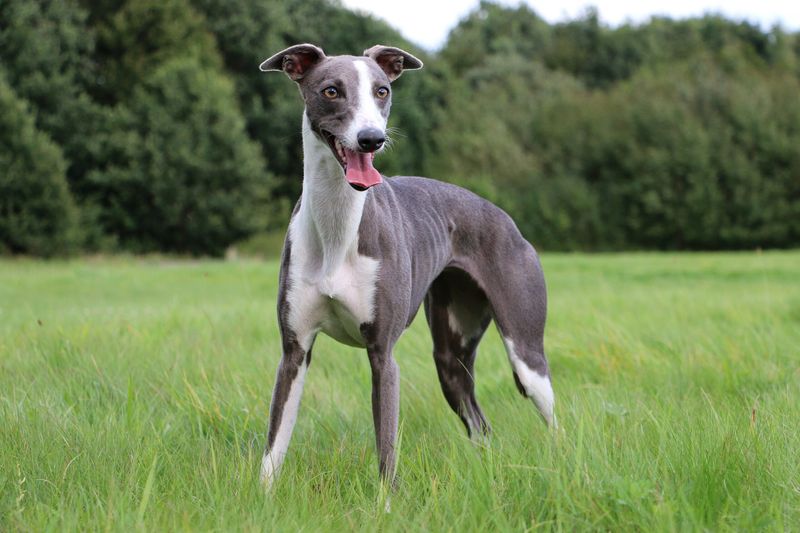
Whippets, like Greyhounds, have a slim build and short coat, making them prone to feeling the cold. They are energetic dogs that love to run, but winter can be a challenging time.
Providing a warm coat for their outdoor adventures is essential. Inside, ensure their resting areas are warm and draft-free. Engaging them with indoor games and soft bedding will keep them content and warm. Keeping an eye on their comfort levels when outside will help manage their exposure to cold weather.
Miniature Pinscher
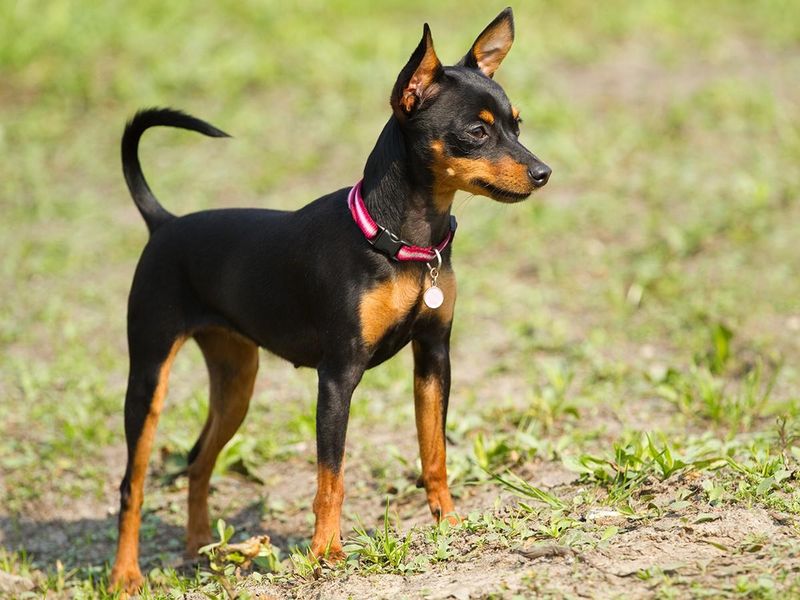
The Miniature Pinscher, with its sleek, short coat, is sensitive to cold temperatures. Despite their spirited nature, they can easily get chilled without proper protection.
Dressing them in warm clothing when outside is important, and keeping their indoor environment snug with blankets and warm beds will ensure their comfort. Encouraging active play indoors will help them stay warm without needing to face the cold. Being attentive to their needs will help you keep your Miniature Pinscher happy and healthy during colder months.
Chinese Shar-Pei
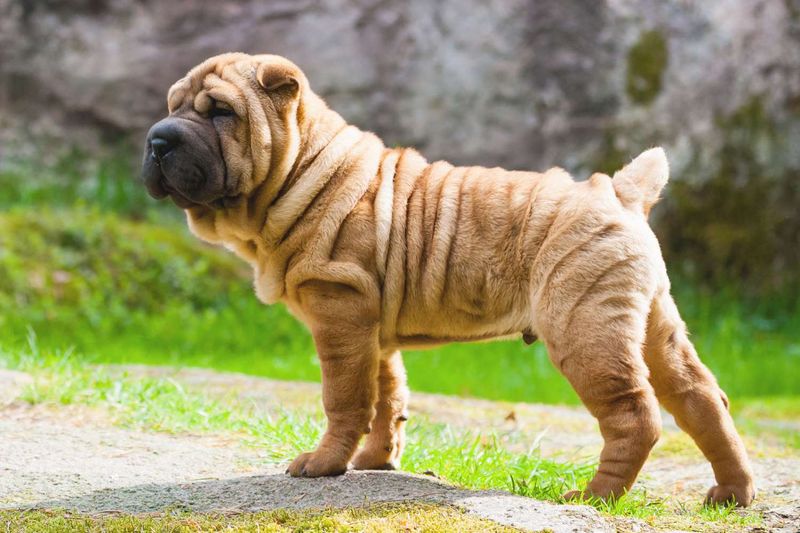
Despite their wrinkles, the Chinese Shar-Pei’s short coat doesn’t provide much insulation against the cold. This breed, originally from warmer climates, needs extra care during winter.
A well-fitting coat for outdoor activities can help keep them warm. Indoors, provide a comfortable bed away from drafts. Regular skin care is also important, as their unique coat can be prone to issues in dry, cold air. Monitoring their comfort levels and adjusting their environment as needed will ensure a cozy, happy Shar-Pei throughout the season.
Shih Tzu
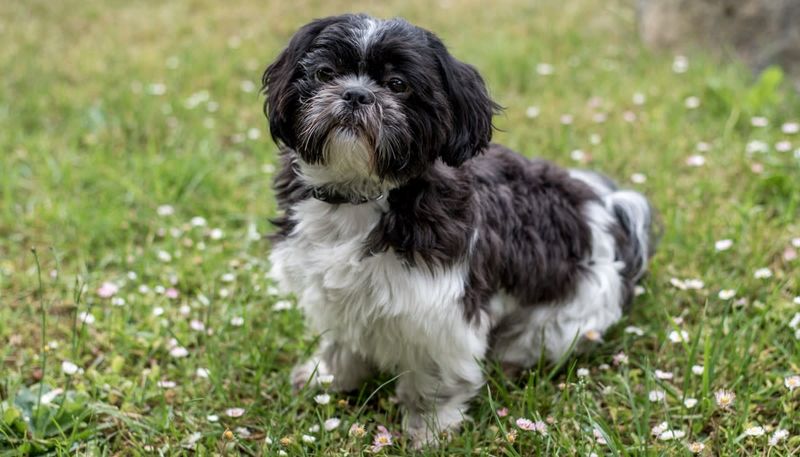
Shih Tzus, with their long, luxurious coats, may seem well-equipped for winter, but they are actually quite sensitive to the cold. Their small size contributes to their susceptibility.
Regular grooming and a warm wardrobe for outdoor strolls will help them stay comfortable. Indoors, a warm, inviting space with plenty of blankets and a cozy bed will keep them snug. Engaging them with toys and indoor activities will also prevent any cold-induced lethargy, ensuring your Shih Tzu stays cheerful and warm.
Pomeranian
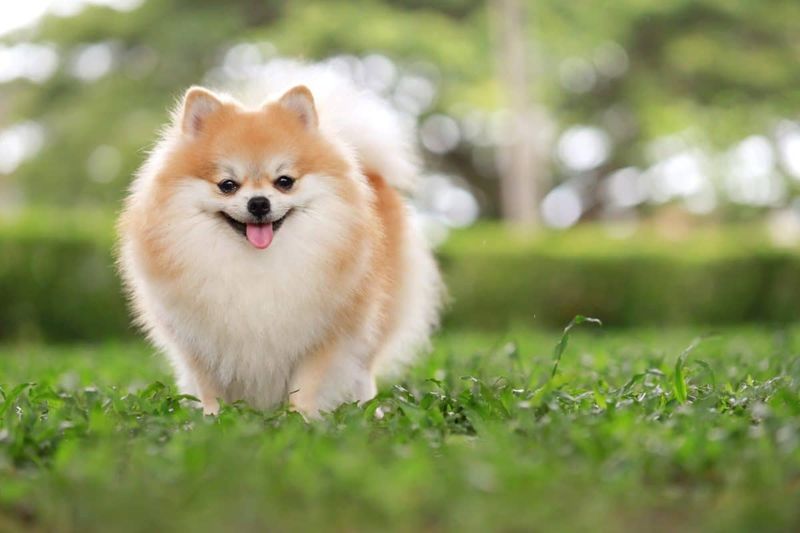
The Pomeranian’s fluffy coat might suggest winter readiness, but their small size means they’re vulnerable to cold temperatures. Extra care is needed to keep them comfortable.
Outfits designed for warmth, along with limiting exposure to frigid weather, will help. Indoors, maintaining a warm environment and providing entertainment can prevent them from feeling the chill. Their luxurious coat requires regular maintenance, so ensure grooming keeps it healthy and insulating. Monitoring their reaction to cold will aid in maintaining their comfort.
Pug
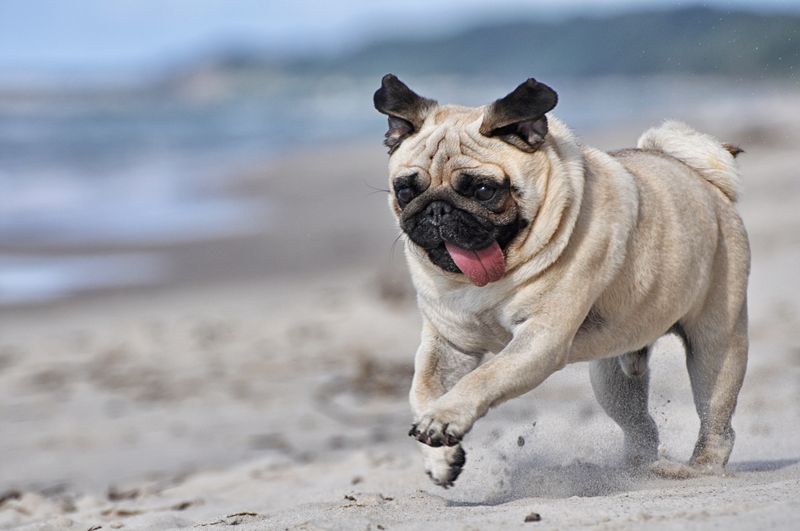
Pugs, with their short coats and flat faces, are not well-suited for cold weather. They can struggle to regulate their temperature effectively.
Warm clothing for outdoor excursions is a must, and keeping their indoor space warm and inviting will ensure they remain comfortable. Providing soft bedding and engaging them in indoor play can help them maintain their usual cheerful demeanor. Observing any signs of discomfort and acting swiftly will keep your Pug happy and healthy during winter.
French Bulldog
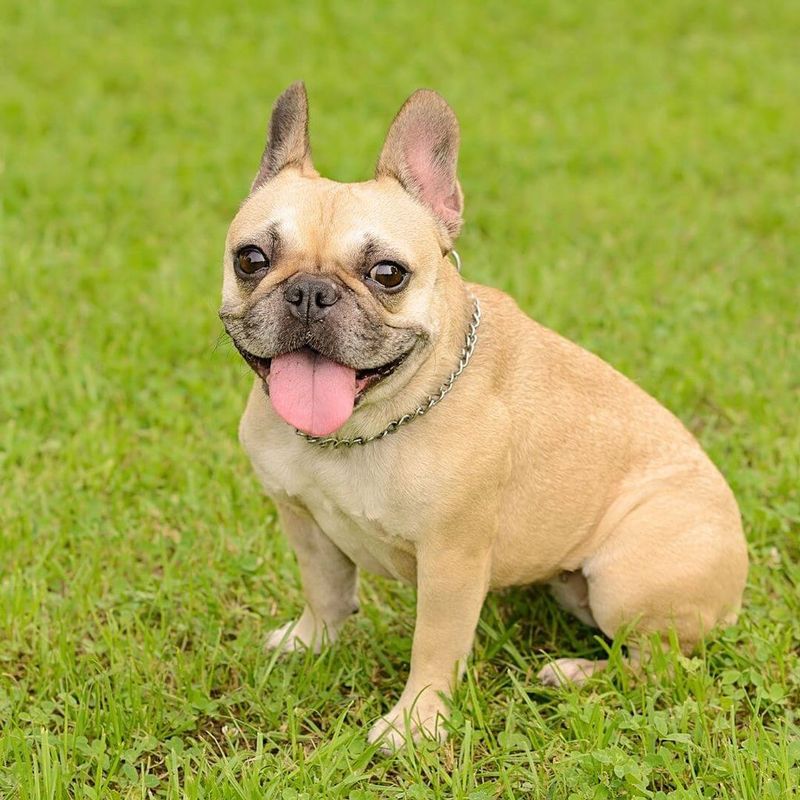
French Bulldogs, like Pugs, have short coats and flat faces, making them cold-sensitive. They require extra warmth during colder months to stay comfortable.
Outfitting them with warm clothing for outdoor activities is important. Indoors, ensure their resting areas are cozy and protected from drafts. Keeping them entertained with toys and indoor games will help them stay active. Paying attention to their reactions in cold weather will guide you in making them feel snug and secure.
Boston Terrier
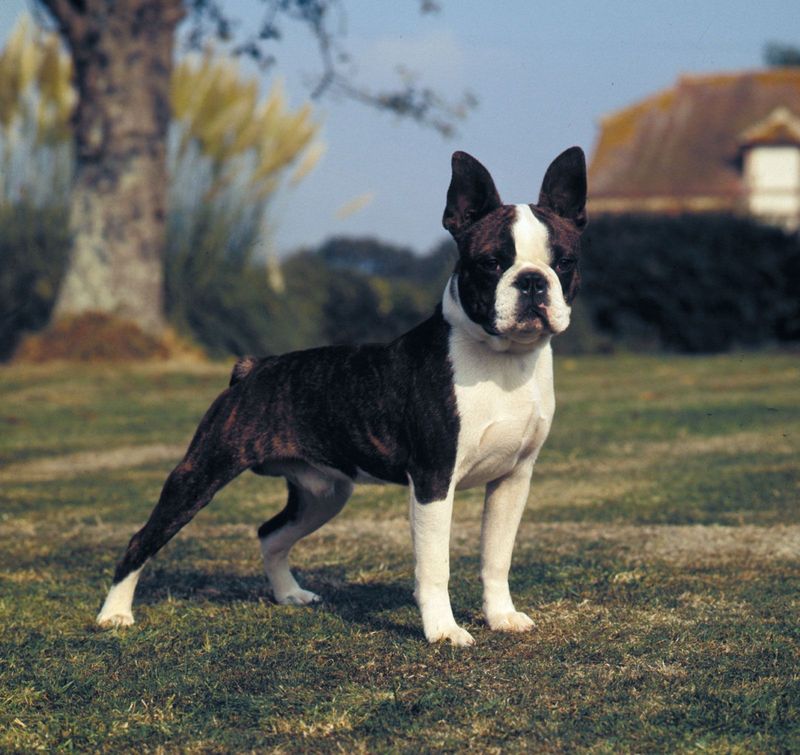
Boston Terriers, with their smooth coats, are not equipped for freezing temperatures. They need assistance staying warm during the winter.
A good-quality coat for outdoor walks can make a big difference. Indoors, providing a warm, cozy space with soft bedding will keep them comfortable. Keeping them entertained with activities and ensuring they don’t spend too much time in the cold is crucial for their well-being. Monitoring their comfort levels will help you provide the best care during winter.
Maltese
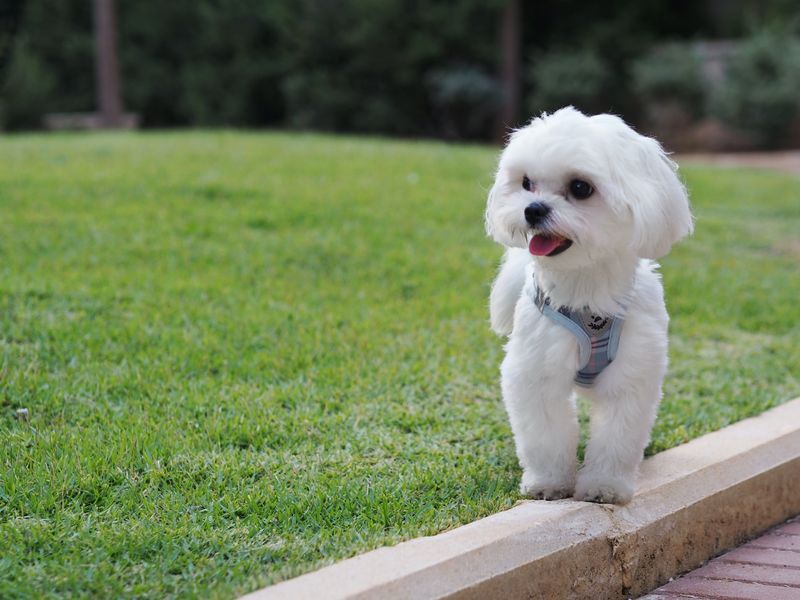
Maltese dogs, with their long, flowing hair, might look like they’d enjoy the cold, but they’re quite susceptible. Regular grooming is key to maintaining their coat’s insulating properties.
Warm clothing for outings and a cozy indoor environment will ensure their comfort. Engage them with toys and fun activities inside to keep their spirits high during winter. Paying close attention to their reactions to cold weather will help you cater to their needs, ensuring they stay warm and cheerful.
Bichon Frise
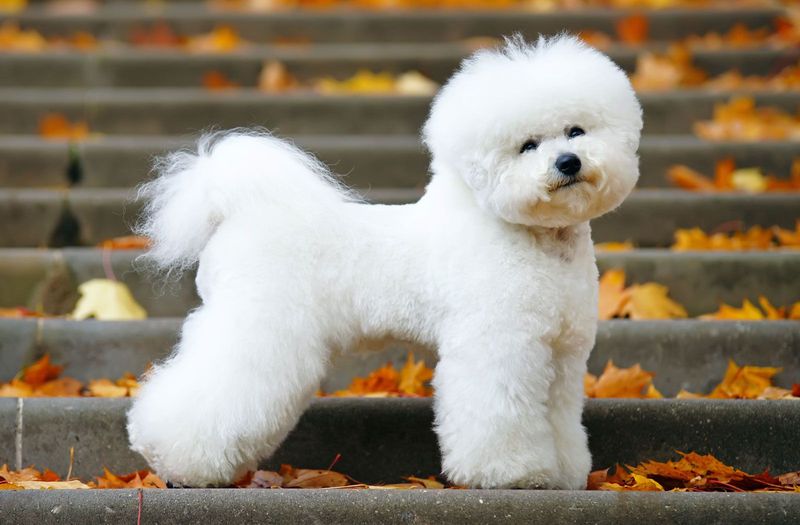
The Bichon Frise’s fluffy coat can be deceiving; beneath it, they are sensitive to cold weather. Proper grooming helps maintain their coat’s protective qualities, but they still need extra care.
Warm clothing and limited outdoor time during colder days are recommended. Creating a warm indoor environment with plenty of entertainment will keep them happy. Monitoring their comfort and adjusting activities accordingly will ensure your Bichon Frise remains content during the chilly season.
Cavalier King Charles Spaniel
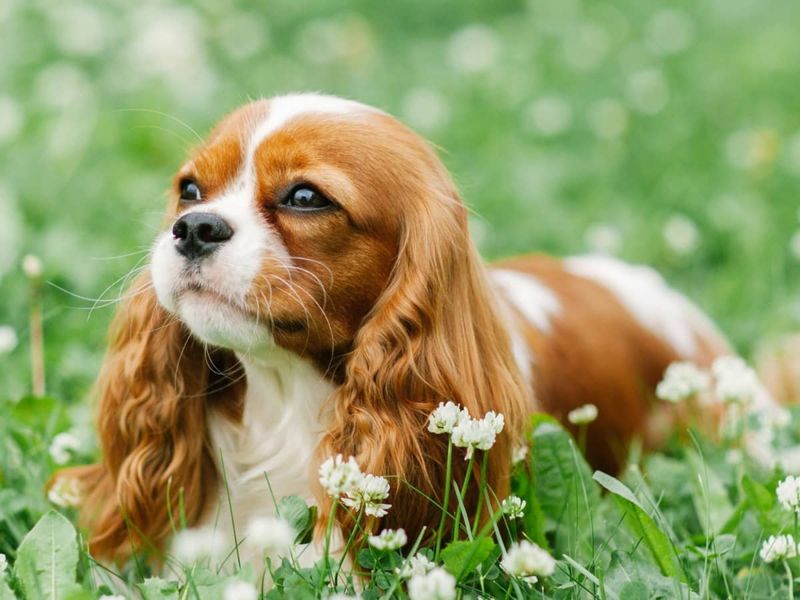
Cavalier King Charles Spaniels, with their elegant coats, may seem fit for winter, but they benefit from extra warmth. Their small size makes them feel the cold easily.
Outfitting them in cozy clothing for walks and ensuring their sleeping area is warm and comfortable are essential. Engaging them in indoor activities will keep their spirits high during colder days. Paying attention to their behavior in cold weather and adjusting care as needed will help maintain their comfort.

